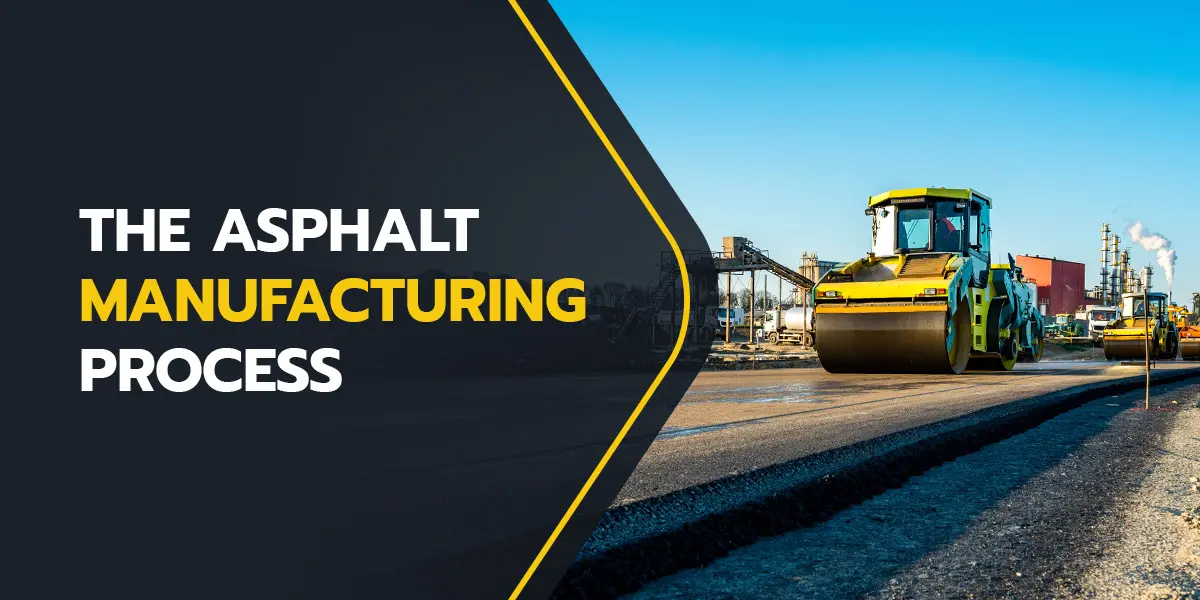The Asphalt Manufacturing Process
Asphalt cement is a durable and long-lasting road paving solution. Because of its natural chemical and weather resistance and smooth surface after leveling, it’s often used to pave parking lots, high-traffic roads, airport runways and pedestrian trails. But how is asphalt cement made?
What Materials Are in Asphalt Cement?
Alongside its modern applications, asphalt organically sourced from brea or other natural deposits has been used for paving roads and caulking gaps for centuries. However, the raw materials in modern asphalt mixes include aggregates — like sand, rocks and gravel — and binders like processed petroleum, a natural liquid bitumen.
How Is Asphalt Cement Made?
Asphalt is a dark, thick brown — sometimes black — mineral substance used for road paving. It is the thick, sticky residue created from crude petroleum distillation. Oil refineries pipe crude oil into a heat exchanger to produce the processed petroleum used in asphalt cement. Then, certain components vaporize through condensing and cooling processes. Once the crude oil has been distilled, the fractions can become many things, like paraffin, diesel, lubricating oil or asphalt.
Once the topped crude is ready after distillation, it is “cut back” or blended with other substances to make a malleable mixture at low temperatures so it can be used for paving. Once the soft substance is exposed to heat or air, the mixture hardens into cement.
In addition to “cutting back,” the topped crude can also be emulsified, pulverized into a powder or oxidized for various purposes. For example, you can emulsify the topped crude to produce a mixture that can be sprayed through pipes and nozzles. You can also use the oxidized asphalt to make a substance used for pipe coating or roofing.
How Is Asphalt Manufactured?
Asphalt mixing facilities combine asphalt with aggregates and binders to create asphalt mixes. There are two main kinds of asphalt mixes used for road paving: hot-mix and cold-mix.
Because asphalt is viscous, a hot-mix needs to be heated at around 300 degrees F to create a malleable mixture ready for paving. Hot-mixes are heated in stationary or mobile hot-mix facilities, or drum mixers, then transported to the job site to be laid. As the hot-mix asphalt cools, pavers compact it into a durable, level surface suitable for pedestrians and vehicles.
On the other hand, cold-mix asphalt mixes do not require heat for paving. Certain additives in the mixture repel water and keep it malleable and soft. Because of its water-repellent nature, cold-mixes are perfect for filling potholes or patching up broken segments of pavement.
South Florida Asphalt Paving Services by The Paving Lady
Asphalt cement offers a low-maintenance, long-lasting, durable solution for road and lot paving. Whether you require a large-scale commercial parking lot or need to patch up your driveway, our team of experts at The Paving Lady will take care of your asphalt paving and maintenance needs. We’re a leading asphalt company based in South Florida specializing in asphalt paving, patching and repair services.
Contact our team online today or call us at (561) 567-7182 to request your free estimate!


